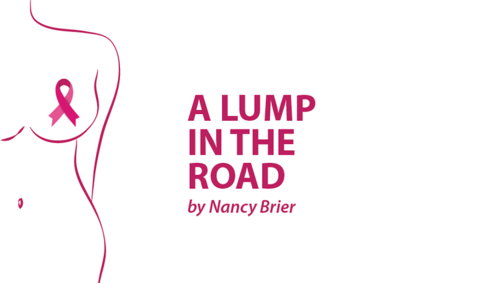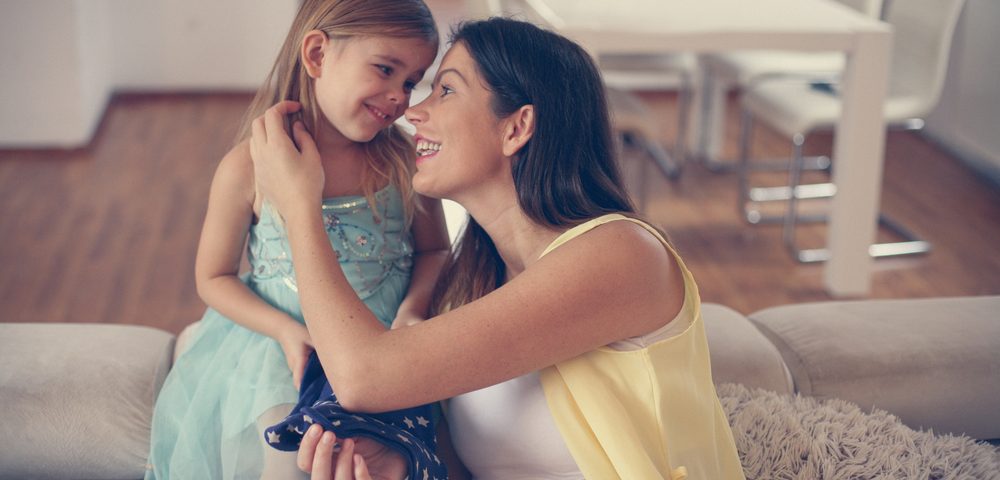
“We have to tell Lauren,” my husband Gary said.
“One more day,” I replied, “Let’s just wait one more day.”
Gary wrapped me in a hug, and told me we’d have to do it the following night.
How could I tell Lauren, my daughter, about my cancer when I couldn’t even get my own head around it? I never wanted to tell my child that her mother had cancer.
Our family had just taken six months off to live in Costa Rica where we surfed, hiked, and drank coconut juice straight from their shells. Yes, Lauren went to school, too, but we still found time to zip line and repel down waterfalls, tromp through jungles looking for monkeys and buy fresh fish right at our front door from a guy on a bike. How did cancer fit into this picture?
I didn’t know anything about cancer then. I didn’t know cells were already forming a lump in my right breast the night our family danced on the beach saying goodbye to Costa Rica. I didn’t know that five short months after that spectacular sunset, Gary would find the lump, hard and well defined, just under the surface of my skin. And I didn’t know I’d be gearing up for the fight of my life.
Cancer. Triple Negative. Aggressive. Already spread.
That was the consensus of the Friday Stanford Tumor Board, a parade of doctors, fellows, students, surgeons and nurses, that somehow, someway, my husband had, against all odds, gotten me into see.
“Go home and pack a bag,” Dr. Gregory Vidal told us in his lilting Dominican Island accent. “Plan to stay for the week. Chemo will start on Thursday.” I had an image of Dr. Greg as a little boy running through fields of sugar cane while the sea sparkled in the background.
Cancer. Triple Negative. Aggressive. Already spread.
Those words hopped in and out of my consciousness like a drumbeat, while visions of palm trees mingled with his tropical-sounding accent.
How could that island kid have wound up at Stanford? What were the chances? He must have been really smart, even back then.
I guess it’s fair to say that my mind meandered, when it should have been focusing on the life-changing news this smart guy was trying to convey.
It was January, 2014, the Wild West days of Obamacare when no one knew which end was up. It was a bad time for a bad diagnosis, but it was a relief that treatment would start immediately.
Well, in a way it was.
The Tumor Board’s normal procedure is to recommend a course of treatment for your doctor back home, not to begin the very next morning.
Gary and I walked out of the hospital shell-shocked, our heads so full we couldn’t even talk. Mostly in silence we made our way through incomprehensible traffic until strip malls gave way to vineyards and finally, to Upper Lake, our tiny community. The drive from Stanford took four hours.
“How were two people who worked from home going to accommodate this schedule?” I thought to myself. Sixteen weeks of chemo? Surgery? Then a month and a half of radiation? Who will care for Lauren?
The next night, the three of us sat on the couch together and had a talk I can’t remember, but will never forget. I can replay parts of it word-for-word, yet it feels like a blur at the same time.
“Mommy, are you going to die?” Her normally peachy face was pale, terrified.
I looked her right in the eyes, held her there.
Eyes locked, I searched for words she could understand, for words that could pass for truth without being too scary.
“It’s true that some people die from breast cancer,” I told her, “but we found really smart doctors who want to help. One of them is named Greg. He has two little boys, and I’m going to do everything he tells me to. And I believe I’m going to get better.”
“Mom’s a rock,” Gary said, “a boulder.” Lauren giggled.
On the advice of a therapist, I told her that cancer isn’t contagious and that no matter what, she was always going to be safe and taken care of.
That night I tucked her in with Scruffy and Rex, their worn-out cotton heads floppy against pink butterflies on her pillow. We said prayers as we always do, “Wherever we are, there God is, and all is well.”
I was thankful for the thick insulation I had sewn to the back of her curtains, lining that blocked the palest shaft of light.
Not trusting my voice, I stroked her forehead in the dark and hummed a lullaby, the way my mom did for me when she was too tired to sing.
“Cancer. Triple Negative. Aggressive. Already spread,” pounded the drumbeat in my head.
“Que sera, sera,” I hummed, “what will be, will be.”
***
Note: Breast Cancer News is strictly a news and information website about the disease. It does not provide medical advice, diagnosis, or treatment. This content is not intended to be a substitute for professional medical advice, diagnosis, or treatment. Always seek the advice of your physician or other qualified health provider with any questions you may have regarding a medical condition. Never disregard professional medical advice or delay in seeking it because of something you have read on this website. The opinions expressed in this column are not those of Breast Cancer News, or its parent company, BioNews Services, and are intended to spark discussion about issues pertaining to breast cancer.

